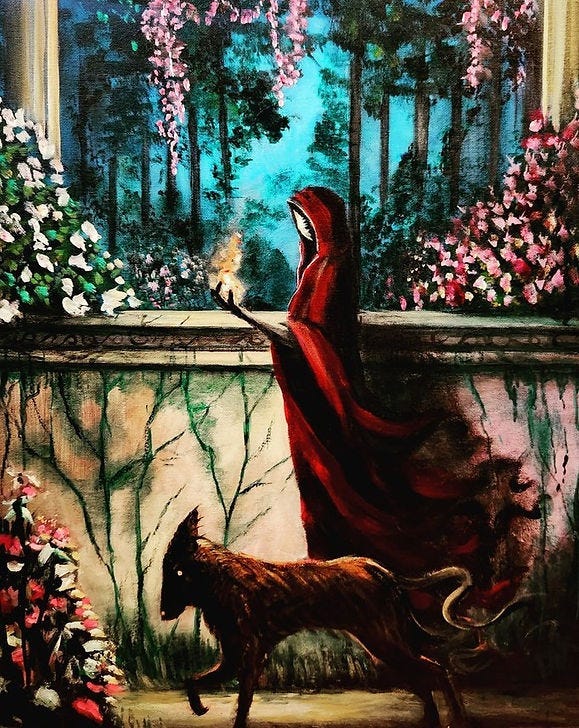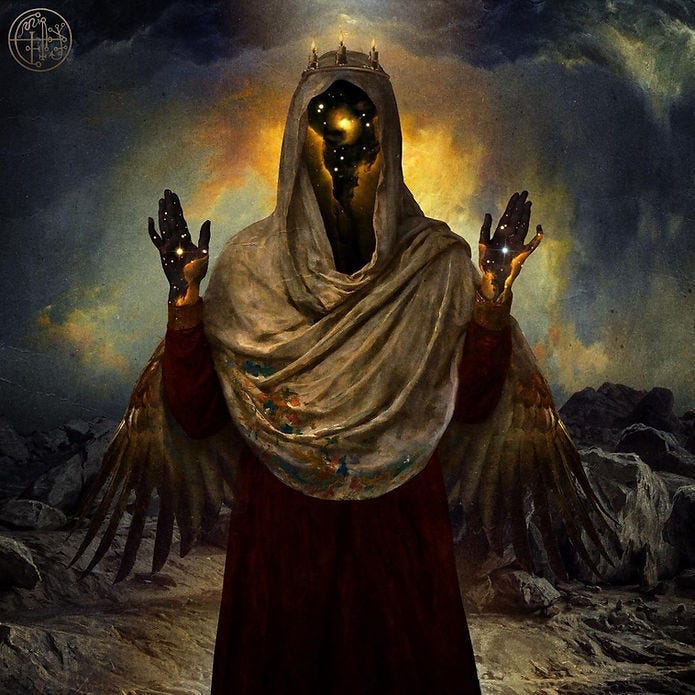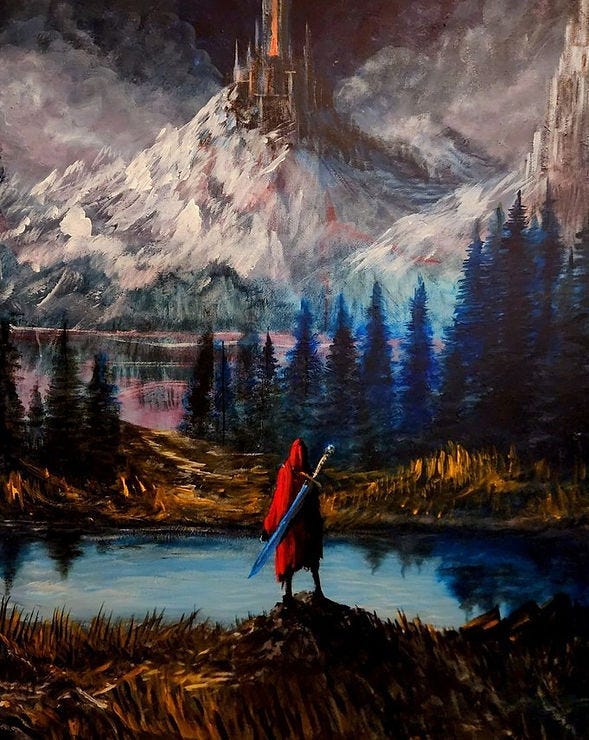What is Speculative Fiction?
A wide umbrella covering diverse genres in media, a hope for our time
Back to Basics, Briefly
I’ll be the first to admit that it’s strange to do this piece now, having written over a hundred posts about ideas from speculative fiction in the last 18 months. Yet as I’ve admitted once or twice — and as you’ve likely noticed, having read a few of these — I have a habit of skipping or speeding through the basics on my way to talk about the most salient details and ideas a story has to offer.
So today I want to go back and fill in the groundwork that probably should have come a hundred posts ago, in one form or another. Towards the end I’ll also go a little bit into why speculative fiction is so important to engage with today and moving forward.

What if…?
Speculative fiction encompasses many genres depicting characters, settings or events that break from reality as we know it, including:
science fiction (e.g. Rendezvous with Rama, Dune)
fantasy (e.g. The Lord of the Rings, The Stormlight Archive)
horror (e.g. The Haunting of Hill House, The Shining)
superhero fiction (e.g. Marvel & DC Comics, Films)
alternate history (e.g. The Man in the High Castle, The Plot Against America)
weird fiction (e.g. The Ballad of Black Tom, House of Leaves)
magical realism (e.g. 1Q84, Life of Pi)
and much more.
In essence, if a story contains anything that doesn’t fit into our understanding of the world, it’s probably speculative fiction. Most often, and especially in science fiction & fantasy (SFF), those outlying elements will be related to either magic or futuristic technology. Stories in other genres depict worlds where the laws of nature and evolution simply work differently. These differences might be relatively minor in scale, such as the ‘hard fantasy’ Masquerade novels by Seth Dickinson, or all-encompassing, like the universe as depicted in Discworld.
Although it doesn’t seem to be the norm, I tend to think of surreal fiction as also belonging under the speculative fiction umbrella. Media like Nathan Fielder’s The Rehearsal (which I wrote about last week) and Synecdoche, New York (2008) play with concepts of reality and artifice, truth and representation in spaces very similar to my favourite speculative fiction, breaking with logic and sense if not wholly with reality.
Likewise Yorgos Lanthimos’ surreal, absurd The Lobster (2015) and The Killing of a Sacred Deer (2017) have characters behaving as though they are living in a speculative fiction setting, even if we never see evidence of their world being so different from our own.

A Mirror of our Fears
Speculative fiction (especially science fiction, weird fiction and horror) often serves as a reflection of our societal anxieties. It gives authors and readers alike a medium to explore and confront current fears by disconnecting them from reality and presenting them through a different pair of eyes.
This is part of the reason behind certain trends in film history. The Cold War inspired a generation of films about the possibility and aftermath of nuclear war while massively increasing the popularity of characters like James Bond. Likewise, the glut of 2000s-2010s apocalypse films is often linked to combined fears about global warming, 9/11 and various doomsday theories.
I’ve written before about the many science fiction short stories from 2017–18 that feel like a direct response to Trump’s first election, exploring xenophobia and feelings of alienation from one’s fellows, government and society. These stories helped me grapple with the horrifying reality of the situation back then, yet somehow pale in comparison to our current reality. The stories published a year or two from now will be very dark, and for good reason.
Closely related to its tendency to reflect our societal anxieties, speculative fiction often repeats the lessons of the past in new ways for younger generations. (I’ve touched on this idea that “those who cannot remember the past are condemned to repeat it” a couple times, most notably with regard to Dune and The Book of Fire.)
But clearly we didn’t tell enough stories about the horrors of the Gestapo and other secret police organizations, given that it’s happening all over again today.

Storytelling
In addition to being our salvation (only partly joking), speculative fiction is just plain fun. There are dozens of awe-inspiring moments and ideas I’ve found here that I’ll never forget, from the blazing heroics of characters in The Stormlight Archive to the intimidating presence of the Ten Who Were Taken in The Black Company and to the cosmic mysteries hinted at in House of Suns and Remembrance of Earth’s Past.
There are also smaller stories that totally captured my wonder and heart, like Piranesi and The Thief — check out those links for why I think they’d make great starting points on your own journey into speculative fiction.
Thanks for reading and until next time ❤




